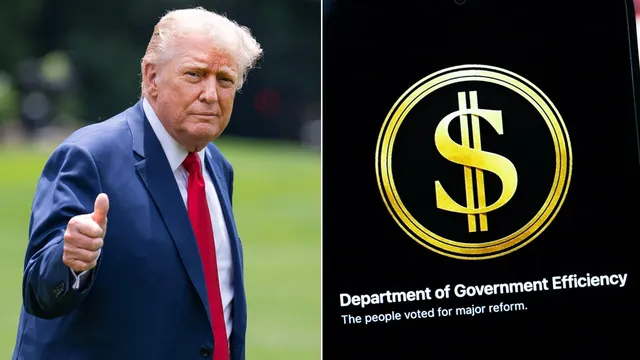
Government efficiency initiative saves $263 million by cutting wasteful contracts
2025-06-10 11:51- The Department of Government Efficiency announced savings of $263 million from terminating 111 wasteful contracts.
- The canceled contracts include a $21,000 executive coaching program and a $480,000 FM operations contract in Zambia.
- This initiative reflects the Trump administration's commitment to combating government waste and promoting efficiency.
Express your sentiment!
Insights
In the United States, the Department of Government Efficiency made a significant announcement on Monday, June 9, 2025. The department revealed that it had successfully terminated 111 wasteful contracts, which resulted in a staggering savings of $263 million. Among the canceled contracts was a $21,000 agreement related to an executive coaching program for the Energy Department, and another contract worth $480,000 concerning FM operations and maintenance for the U.S. Agency for Global Media based in Lusaka, Zambia. This initiative is part of the broader DOGE effort led by the Trump administration to combat government waste, fraud, and abuse. The DOGE initiative aims to enhance accountability and responsibility within government agencies, pushing them to identify and eliminate unnecessary expenditures. In the last three days leading to the announcement, various agencies have worked diligently to scrutinize their contracts and terminate those deemed wasteful. The showcased contracts are just a couple of examples of the government's commitment to improving efficiency and better utilizing taxpayer money. Following the announcement, the DOGE account on X celebrated the achievements and shared these examples as evidence of real progress. The initiative represents a significant shift in how government funds are managed, emphasizing a tighter control over public spending. The Department of Government Efficiency, through this maneuver, highlights its role in ensuring fiscal responsibility and addressing concerns over government expenditures. The context surrounding this announcement also reflects the ongoing challenges faced by the U.S. government in managing public funds effectively. With rising budget concerns and public scrutiny regarding the utilization of taxpayer money, the DOGE effort has become increasingly relevant. As agencies continue to pursue similar initiatives, the potential for further savings and a reduction in wasteful spending could positively impact the nation’s financial health in the long run.
Contexts
The Department of Government Efficiency plays a crucial role in enhancing the effectiveness of governmental operations across various functions and agencies. Established with the aim of streamlining procedures, reducing waste, and improving service delivery, this department is guided by a commitment to transparency and accountability. By fostering a culture of continuous improvement, the department not only seeks to implement operational efficiencies but also to cultivate a mindset among public officials that prioritizes innovation and responsiveness to citizens' needs. Central to the mission of the Department of Government Efficiency is the identification of best practices from both public and private sectors. Through comprehensive analyses and benchmarking efforts, the department aims to pinpoint areas where significant improvements can be made. This involves conducting thorough assessments of existing policies and procedures, identifying redundancies, and recommending actionable strategies for reform. The department collaborates with various stakeholders, including other government entities, non-profit organizations, and private-sector leaders, to share knowledge and resources, ultimately driving collective efforts toward enhanced governmental performance. Moreover, the Department of Government Efficiency emphasizes the importance of data-driven decision-making. By leveraging technology and analytical tools, the department ensures that policies are informed by robust evidence, ultimately leading to better outcomes for constituents. Training and support are provided to government employees to enhance their skills in using data for improving operational efficiencies. Additionally, encouraging feedback from citizens and employees on government services forms a vital part of the department's strategy to ensure that improvements are aligned with the actual needs and expectations of the public. In conclusion, the Department of Government Efficiency is integral to modernizing government operations and fostering a responsive and effective administration. Through innovative practices, stakeholder collaboration, and a dedication to evidence-based reform, the department strives to ensure that public resources are utilized effectively, thereby enhancing the overall quality of government services. As the landscape of governance continues to evolve, the commitment of this department to efficiency and effectiveness will remain paramount in addressing contemporary challenges and meeting the expectations of constituents.